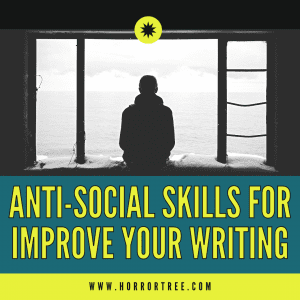 Anti-Social Skills for Improve Your Writing
Anti-Social Skills for Improve Your Writing
In reality, it is important to improve your social skills to interact with other people better. But a writer needs some anti-social skills to pull off excellent writing. For instance, if you want to describe horror scenes, you need to set your unsocial side to work to describe better. It sounds weird, right? Don’t allow it to be.
Writers are typically introspective. They perceive the world with depth. So it helps them to carve out stories from their thoughts and contemplations. In most cases, writers are often viewed as idealists who lose themselves to the reflections in their minds. They bear untold stories in their hearts every step of the way.
However, some novice writers can’t even tell when their minds are creating a story. So the real challenge is to translate untold stories into a character’s words. You can find out about it on Ninjaessay. They offer essay samples that can help you to see the light. It comes to what your anti-social skills are and how to channel them to your writing.
What Are Anti-Social Skills?
First things first—what are anti-social skills? Let’s be honest. It’s challenging to create a meaning for anti-social skills in this context. It is because they are not typically described as skills but harmful behaviors that disrupt societal activities. In many cases, the phrase “anti-social” is often associated with personality disorders.” But in the world of writing, anti-social behavior is a skill and not a harmful behavior. Social skill is the ability to communicate with others. But an anti-social skill is the ability to communicate with yourself.
(more…)


 Where do You Get Your Ideas?
Where do You Get Your Ideas? How Can Writers Vary Sentence Structure?
How Can Writers Vary Sentence Structure? Pathos: a Greek word meaning both ‘suffer’ and ‘experience.’
Pathos: a Greek word meaning both ‘suffer’ and ‘experience.’ How to Write a Horror Story for a Child and an Adult Reader
How to Write a Horror Story for a Child and an Adult Reader How I write quiet horror
How I write quiet horror 7 Tips How to Come Up with the Main Characters of Horror Story
7 Tips How to Come Up with the Main Characters of Horror Story Anti-Social Skills for Improve Your Writing
Anti-Social Skills for Improve Your Writing






